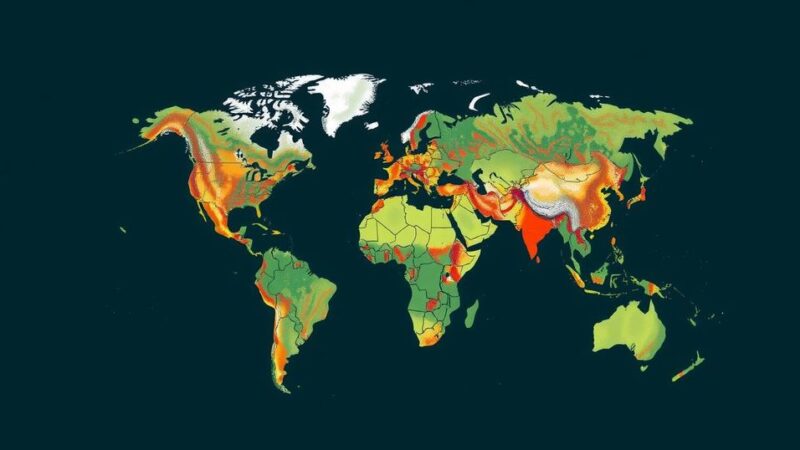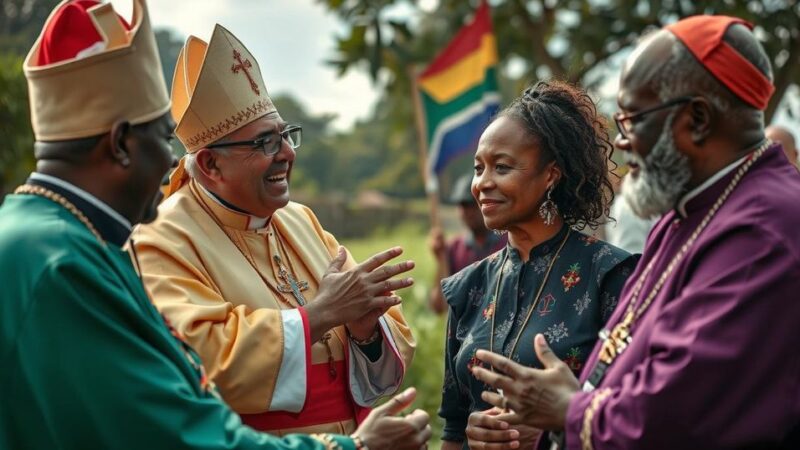G20 leaders focused on urgent climate change discussions on the summit’s final day, advocating for enhanced climate finance and commitments ahead of U.N. climate talks. They emphasized the critical need to develop a substantial financial target for assisting poorer nations while navigating complex negotiations between developed and developing countries. A legally binding treaty to address plastic pollution was also pledged by 2024.
On the final day of the summit in Rio, G20 leaders convened to prioritize discussions on climate change as the global temperature trends toward a record high. As they set their sights on upcoming U.N. climate negotiations in Azerbaijan, the leaders expressed urgency in enhancing commitments to combat climate change, particularly in light of the impending return of Donald Trump to the U.S. presidency, which could jeopardize existing climate accords. A joint statement from the G20 highlighted the need for substantial increases in climate finance, aiming for a shift from billions to trillions in funding to address these challenges. The G20 leaders recognized the necessity for COP29 negotiators to establish a new fiscal target for climate finance that wealthy nations should contribute to assist developing nations in their climate initiatives. A proposed financial target of at least $1 trillion annually was suggested by economists, although the G20’s final declaration failed to outline a clear path for achieving this goal, leaving many issues unresolved as the talks progressed. While developed nations advocate for an expanded contributor base—including affluent developing nations and wealthy Middle Eastern states—developing countries, represented by Brazil at the G20, resisted calls for broader participation, citing the historical responsibility of developed nations in contributing to climate change. Moreover, a suggestion that developing nations might contribute voluntarily was omitted from the final agreements, highlighting the complexity of negotiations. Opening the summit, President Luiz Inácio Lula da Silva remarked on the pressing nature of climate-related crises worldwide, underlining the G20’s critical role, as these countries are accountable for 85% of the global economy and over three-quarters of greenhouse gas emissions. Additionally, the G20 pledged to finalize a legally binding treaty to combat plastic pollution by the end of 2024, with discussions set to continue imminently to resolve ongoing negotiations.
Climate change presents one of the most pressing global challenges today, with its impacts increasingly felt across various regions. The G20, wielding significant economic and environmental influence, is pivotal in shaping international climate policy. The summits and ensuing agreements serve to align major economies on strategies pertinent to mitigating climate change and enhancing sustainability. The context of this summit is further intensified by political dynamics, particularly the implications of the next U.S. presidential term on global climate agreements.
In summary, the G20 leaders’ meeting concluded with a strong emphasis on the urgent need to address climate change through increased financial commitments and collaborative efforts among nations. While significant challenges remain in reconciling differing national interests, particularly between developed and developing countries, the G20’s commitment to a legally binding treaty against plastic pollution signals progress. The upcoming U.N. climate talks will test these commitments and the political will to confront the climate crisis effectively.
Original Source: kathmandupost.com

